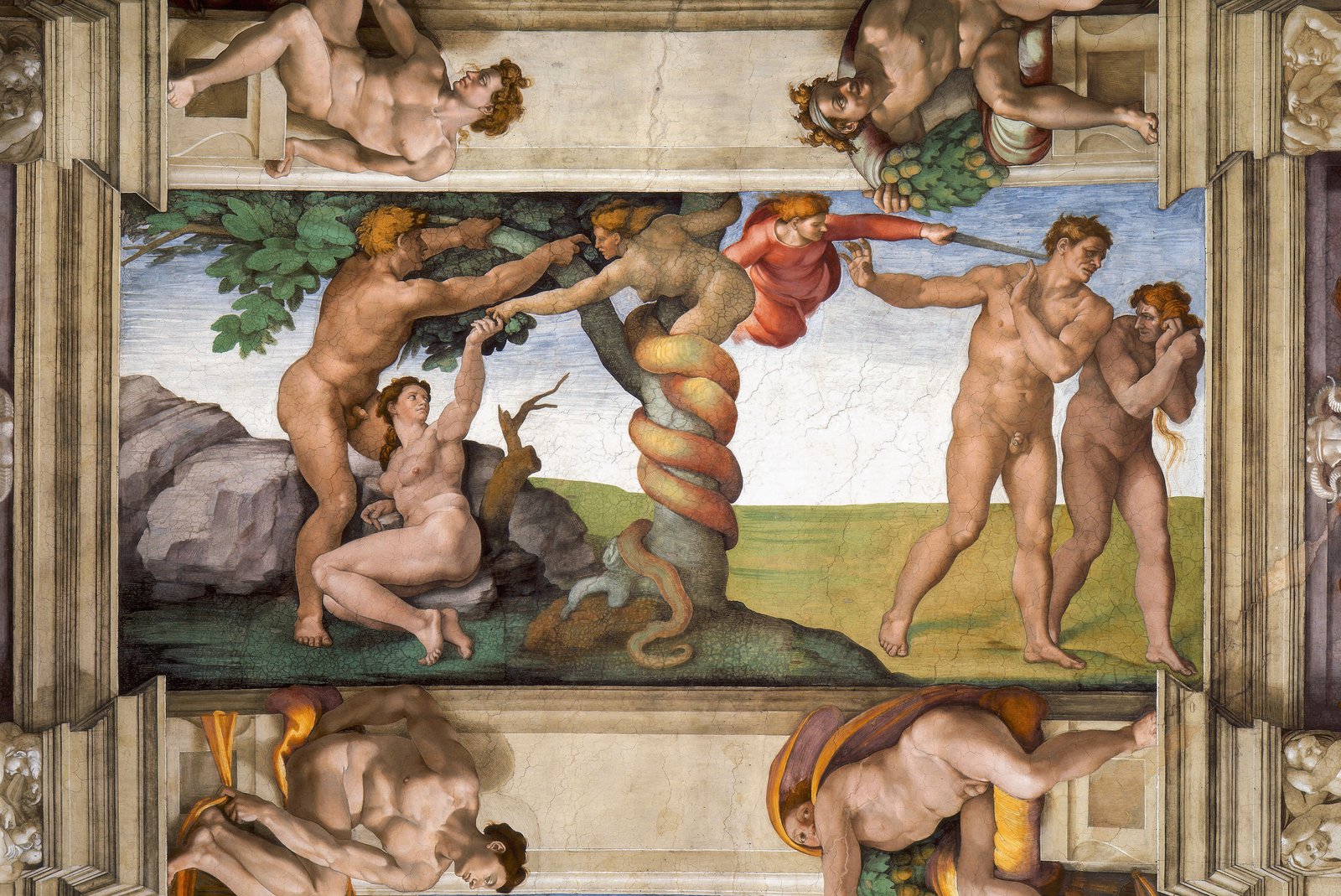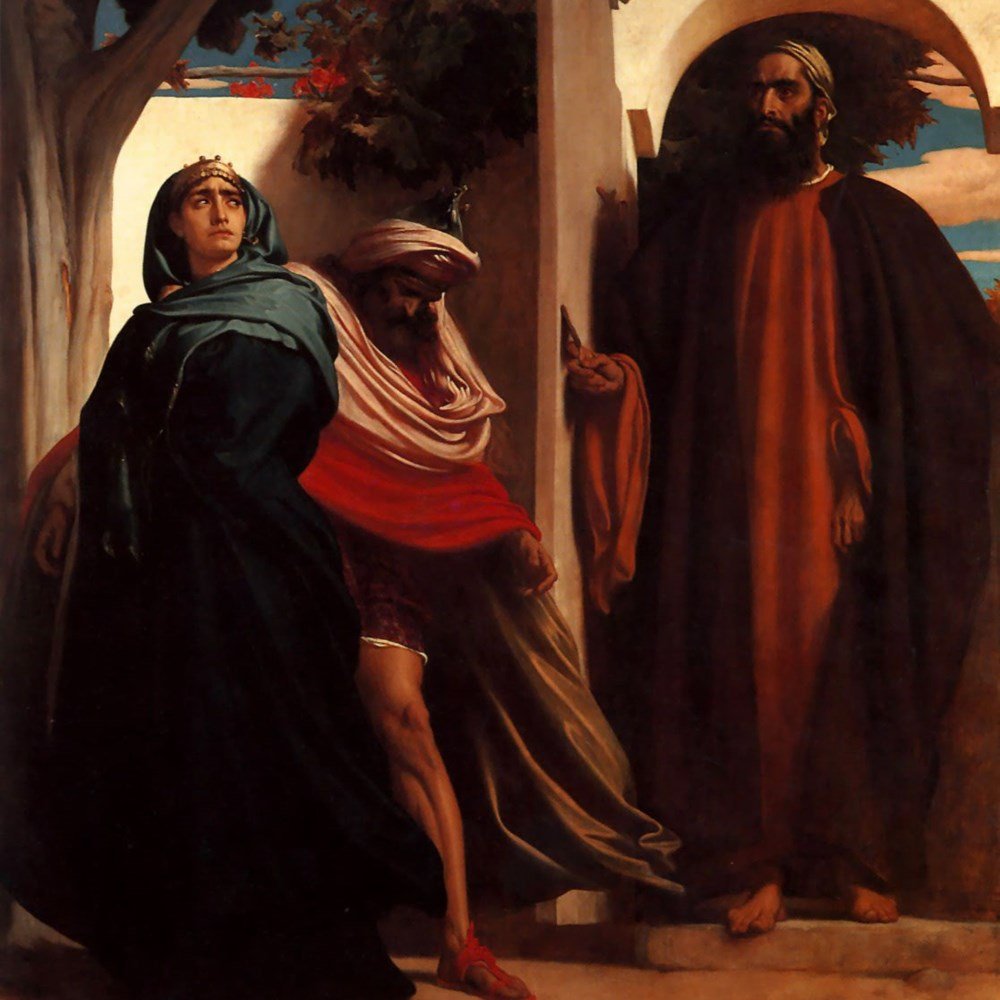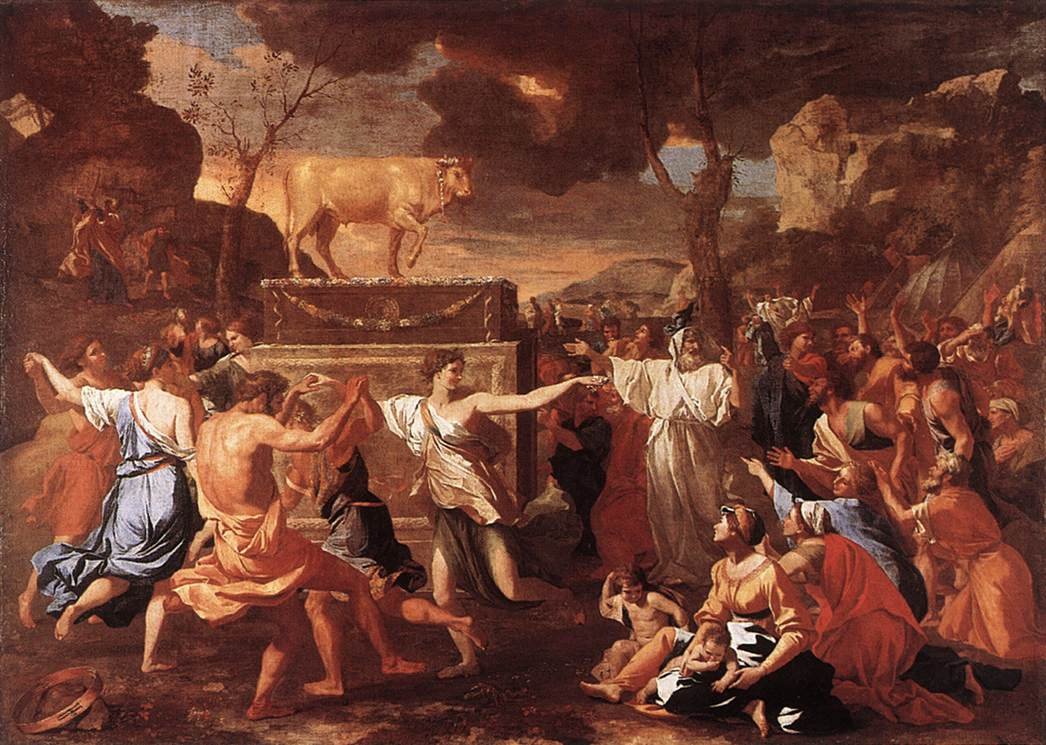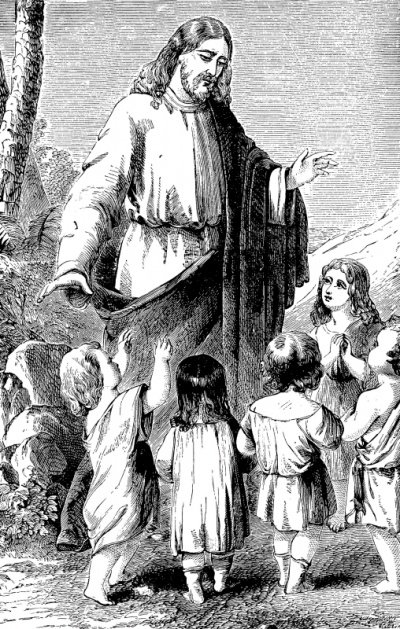

After Shakespeare, the King James Version of the Bible represents the most common source of idiomatic expressions in English. The King James Bible, which was first printed in 1611, was England’s authorized version of the Bible, translated from the original languages – Hebrew and Greek – into English, at the request of King James I of England.
The King James Bible was written in a style of English known as Early Modern English, which was the standard form of the language at the time. It was written in a formal and elaborate style that was intended to be accessible to a wide audience and to convey the solemnity and importance of the text. The King James Bible had a profound influence on the development of the English language and was widely read and studied. It helped to establish many of the grammatical and syntactical conventions that are still in use today and contributed to the standardization of the English language.
The Bible wasn’t just important in the development and standardization of the English language. It is also a rich source of idioms. An idiom is a phrase or expression that has a figurative meaning that is different from the literal meaning of the words. The Bible is full of idioms that have become a part of the English language and are commonly used in everyday speech. Learning these expressions can and will help us to understand native speakers and texts and to express ideas in a concise way.
The many phrases and terms from the Bible are used as allegory, metaphors, idioms, or simply to describe the characteristics of a known person or event. They have become an essential element of literature and descriptions of everyday life situations. Tap/Click to view the list (though not certainly complete) of the more popular biblical phrases:
Let There Be Light
And God said, 'Let there be light,' and there was light. (Genesis 1:3)
The term is used most often in an explanation of discovery, understanding, or enlightenment. It is also used to indicate "let the facts become known."
Forbidden Fruit
And the Lord God commanded the man, "You are free to eat from any tree in the garden; but you must not eat from the tree of the knowledge of good and evil, for when you eat from it you will certainly die." (Genesis 2:16-17)
Forbidden fruit' is something that is greatly desired but forbidden. In this sense, it can have negative results."
Fall from Grace
You who are trying to be justified by the law have been alienated from Christ; you have fallen away from grace. (Galatians 5:4)
By the Sweat of Your Brow &
Ashes to Ashes, Dust to Dust
Part of Adam's punishment was to work the ground, which would always be a hardship.
By the sweat of your brow you will eat your food until you return to the ground, since from it you were taken; for dust you are and to dust you will return. (Genesis 3:19)
Most often part of funeral rituals, "ashes to ashes" is the cycle of life.
As Old as Methuselah
Fire & Brimstone
This is what God rained down on the cities of Sodom and Gomorrah for their sins. It is symbolic of the appearance of the landscape in the Dead Sea area as if it had been wiped out by God, and it is used as a metaphor for impending disaster.
Land of Milk & Honey
This is the description of the land of Canaan promised to Abraham and a continuing promise to the Jews for their faithfulness.
Hear, Israel, and be careful to obey so that it may go well with you and that you may increase greatly in a land flowing with milk and honey, just as the Lord, the God of your ancestors, promised you. (Deuteronomy 6:3)
Milk and honey are references to good grazing for cattle and the ancient source of sugar.
The Golden Calf
These are your gods, Israel, who brought you up out of Egypt. (Exodus 32:4)
An Eye for an Eye, a Tooth for a Tooth
This phrase is often misunderstood, as it came into the tradition as the Lex Talionis, the law of retaliation.
Anyone who injures their neighbor is to be injured in the same manner: fracture for fracture, eye for eye, tooth for tooth. The one who has inflicted the injury must suffer the same injury. (Leviticus 24:19-20)
However, it was never understood literally. In the gospel of Matthew, it was repeated by Jesus during the Sermon on the Mount:
You have heard that it was said, "Eye for eye, and tooth for tooth." But I tell you, do not resist an evil person. If anyone slaps you on the right cheek, turn to them the other cheek also. (Matthew 5:38-39)
In this case, the lesson of the sermon was not to seek compensation in lawsuits; when Jesus returned, all claims of harm or injustice would be rectified by God.
Manna from Heaven &
Man Does Not Live on Bread Alone
During the wilderness years, God often sent food to help the Israelites survive. Manna was a wafer-like substance that appeared on plants with the morning dew. Manna from Heaven indicates a divine intervention or an unearned gift from God. God reminded the Israelites that life is more than mere survival, but that the soul should be nourished as well:
He humbled you, causing you to hunger and then feeding you with manna, which neither you nor your ancestors had known, to teach you that man does not live on bread alone but on every word that comes from the mouth of the Lord. (Deuteronomy 8:3)
This was repeated by Jesus Christ when tempted by the Devil to turn stones into bread:
It is written: "Man shall not live on bread alone, but on every word that comes from the mouth of God." (Matthew 4:4)
Scapegoat
The process of blaming another for one's mistakes. The ritual of the scapegoat was performed by the high priest. Two goats were chosen; one was slaughtered, and the other sent to the wilderness. This was done as a collective atonement for the sins of the people which were carried by the goat to the demon Azazel.
A Man after My Own Heart
The first king of Israel, Saul, turned out to be a bad king. God had Samuel anoint King David to replace him.
But now your kingdom will not endure; the Lord has sought out a man after his own heart and appointed him ruler of his people, because you have not kept the Lord's command. (1 Samuel 13:14).
It has come to mean someone who shares the same opinions or interests, a kindred spirit.
How the Mighty Have Fallen
King Saul and his son Jonathan were both killed in a battle against the Philistines. This is part of a lament that even those who were raised up to the heights are nevertheless subject to fate (or God's will).
To Put Words in Someone's Mouth
"And Joab put the words in her mouth". (2 Samuel 14:3)
It is Joab's attempt to bring the rebellion of David's son Absalom to David's attention. He finds a widow and tells her to concoct a story about a loss of land compensation. It has come to mean a misunderstanding or literal interpretation of someone's original intent.
Feet of Clay
Your Majesty looked, and there before you stood a large statue—an enormous, dazzling statue, awesome in appearance. The head of the statue was made of pure gold, its chest and arms of silver, its belly and thighs of bronze, its legs of iron, its feet partly of iron and partly of baked clay (Daniel 2:31-33).
Feet of clay' refers to a hidden character flaw or weakness in a person that could tumble the whole edifice.
The Writing Is on the Wall
Suddenly the fingers of a human hand appeared and wrote on the plaster of the wall, near the lampstand in the royal palace. The king watched the hand as it wrote. His face turned pale and he was so frightened that his legs became weak and his knees were knocking. (Daniel 5:5-6)
The writing on the wall is an indication of imminent danger if one can only understand its meaning.
Jezebel & Delilah
Jezebel was responsible for the downfall of Ahab, the king of Northern Israel. She contended against the prophet Elijah.
He not only considered it trivial to commit the sins of Jeroboam son of Nebat, but he [Ahab] also married Jezebel daughter of Ethbaal king of the Sidonians, and began to serve Baal and worship him. (1 Kings 16:31)
Skin and Bones & Skin of My Teeth
In the book of Job, Job suffers relentlessly as a test of his faithfulness to God.
I am nothing but skin and bones; I have escaped only by the skin of my teeth. (Job 19:20)
'Skin and bones' refers to the bare essentials of life, while 'skin of my teeth' indicates a very narrow margin for something to happen.
Weighed in the Balance
When Job's friends claim that he must have sinned to account for his suffering, Job responded:
... let God weigh me in honest scales and he will know that I am blameless. (Job 31:6)
It has come to mean giving equal consideration to two opposing views. Also,
You have been weighed on the scales and found wanting. (Daniel 5:27)
Bite the Dust
May desert tribes bow down before him and his enemies lick the dust. (Psalm 72:9)
It means to die.
At Wits' End
They reeled and staggered like drunkards; they were at their wits' end. (Psalm 107:27)
An exhausted state of worry or despair.
Spare the Rod, Spoil the Child
Whoever spares the rod hates their children, but the one who loves their children is careful to discipline them. (Proverbs 13:24)
Pride Goes before a Fall
Pride goes before destruction, a haughty spirit before a fall. (Proverbs 16:18)
Too much pride or confidence in oneself can lead to mistakes or even disaster.
There Is Nothing New under the Sun
What has been will be again, what has been done will be done again; there is nothing new under the sun. (Ecclesiastes 1:9)
Sometimes applied to the monotony of life, it also reflects the idea that the bumps in life should not set us back.
For Everything There Is a Season
There is a time for everything, and a season for every activity under the heavens. (Ecclesiastes 3:1)
There is a right time for everything that happens; context can help to keep things in perspective.
Eat, Drink & Be Merry
So I commend the enjoyment of life, because there is nothing better for a person under the sun than to eat and drink and be glad. Then joy will accompany them in their toil all the days of the life God has given them under the sun. (Ecclesiastes 8:15).
A Fly in the Ointment
As dead flies give perfume a bad smell, so a little folly outweighs wisdom and honor. (Ecclesiastes 10:1)
An imperfection or flaw can diminish the status and standing of a person.
A Drop in a Bucket
Surely the nations are like a drop in a bucket; they are regarded as dust on the scales; he weighs the islands as though they were fine dust. (Isaiah 40:15)
It indicates little or no significance in an event.
No Rest for the Wicked
There is no peace, says the Lord, for the wicked. (Isaiah 48:22).
An indication that though the wicked may prosper now, God's justice will weigh them in the end.
Like a Lamb to the Slaughter
He was oppressed and afflicted, yet he did not open his mouth; he was led like a lamb to the slaughter, and as a sheep before its shearers is silent, so he did not open his mouth. (Isaiah 53:7)
This is from the suffering servant passages of Isaiah and utilized in the gospels telling the story of the trial and crucifixion of Jesus of Nazareth. It is often used in the sense that an innocent has no idea what is going to happen to them.
Baptism of Fire
John answered them all, "I baptize you with water. But one who is more powerful than I will come, the straps of whose sandals I am not worthy to untie. He will baptize you with the Holy Spirit and fire." (Luke 3:16)
It refers to a difficult, first experience of something.
Head on a Platter
I want you to give me right now the head of John the Baptist on a platter. (Mark 6:25)
Go the Extra Mile
If anyone forces you to go one mile, go with them two miles. (Matthew 5:41)
In context, this was a reference to Roman law that civilians could be forced to carry a legionary's equipment up to one mile. The saying is that you should go above and beyond what is required or necessary.
To Cast Pearls before Swine
Do not give dogs what is sacred; do not throw your pearls to pigs. If you do, they may trample them under their feet, and turn and tear you to pieces. (Matthew 7:6)
Casting pearls before swine' is to provide something prized or valuable to someone who does not appreciate it.
Wolves in Sheep's Clothing
Watch out for false prophets. They come to you in sheep's clothing, but inwardly they are ferocious wolves. (Matthew 7:15)
Those who appear harmless often cannot be trusted.
A House Divided against
Itself Cannot Stand
Jesus knew their thoughts and said to them, "Every kingdom divided against itself will be ruined and every city or household divided against itself will not stand." (Matthew 12:25)
Disagreements in a group will lead to its downfall. The line was famously used by Abraham Lincoln in an anti-slavery speech in 1858.
The Blind Leading the Blind
Every plant that my heavenly father has not planted will be pulled up by the roots. Leave them, they are blind guides. If the blind lead the blind, both will fall into a pit. (Matthew 15:13-14)
Put your faith and confidence in those who know the truth, not those who are ignorant.
To Move Mountains
Truly I tell you, if you have faith as small as a mustard seed, you can say to this mountain, "Move from here to there," and it will move. Nothing will be impossible for you. (Matthew 17:20)
A teaching that faith can conquer all.
The Eleventh Hour
In the Parable of the Tenants in Matthew 20, they workmen who heeded the call got paid as much as the ones who were there earlier. The phrase came to mean that even at the eleventh hour, if someone repents, salvation is possible.
Kiss of Death
Now the betrayer had arranged a signal with them: "The one I kiss is the man; arrest him." (Matthew 26:48)
Wash One's Hands of the Matter
When Pilate saw that he was getting nowhere, but that instead an uproar was starting, he took water and washed his hands in front of the crowd. "I am innocent of this man's blood," he said. "It is your responsibility!" (Matthew 27:24)
It indicates that one has no further use for something or is not culpable in a decision. The gospel account blamed the Jews for the death of Jesus and not Pilate.
Good Samaritan
But a Samaritan, as he traveled, came where the man was; and when he saw him, he took pity on him. (Luke 10:33)
Samaritans were enemies of Jews in Jerusalem. Luke used it as a model of contrast; a person who helps someone, especially a stranger.
Throw the First Stone
The Sanhedrin was ready to stone a woman caught in adultery. Jesus challenged them:
Let any one of you who is without sin be the first to throw a stone at her. (John 8:7)
In other words, look at yourself first before you condemn someone.
Better to Give than Receive
In everything I did, I showed you that by this kind of hard work we must help the weak, remembering the words the Lord Jesus himself said: "It is more blessed to give than to receive." (Acts 20:35)
It is morally more fulfilling to give than to receive something.
Struck on the Road to Damascus
The Love of Money is the Root of All Evil
For the love of money is a root of all kinds of evil. Some people, eager for money, have wandered from the faith and pierced themselves with many griefs. (1 Timothy 6:10)
The love of money above all other considerations eventually leads to downfall.
The Four Horsemen of the Apocalypse
In the Book of Revelation (6:1-8), angels open sealed documents, and four riders issue forth as an indication of the coming wrath of God before he institutes his kingdom on earth. The scrolls reveal white, red, black, and pale horses. They indicate war, famine, inflation, and death. In times of crises, people look to these indicators to determine if they are omens for social or economic collapse.
Armageddon
Then they gathered the kings together to the place that in Hebrew is called Armageddon. (Revelation 16:16)
This is where the nations gather to make the move south to Jerusalem for the final battle of John of Patmos' prediction. From the Hebrew har ("mountain"), har-Megiddo means the mountain of Megiddo in the Jezreel Valley. Armageddon is often used as a final battle that has already taken place in science-fiction films, where society must readjust to survive.
The Whore of Babylon
The name written on her forehead was a mystery: Babylon the great the mother of prostitutes and of the abominations of the earth. (Revelation 17:5)
Babylon was the great evil enemy who destroyed Jerusalem and the Temple of Solomon in 587 BCE. It is used in Revelation as symbolic of Rome. The whore of Babylon is utilized as a critique of oppressive governments and perceived persecution.

A panel from ceiling of the Sistine Chapel in the Vatican, Rome. The panel shows the temptation and then expulsion of Adam and Eve from the Garden of Eden. The ceiling was created between 1508 and 1512 CE by the Italian Renaissance artist Michelangelo (1475-1564 CE) and shows the story of Genesis from the Creation to the Great Flood.

Cain Slaying Abel, oil on oak wood painting by Peter Paul Rubens, produced between 1608 and 1609. Courtauld Institute of Art, London.
Cain and Abel were sons of the first humans Adam and Eve in the biblical Book of Genesis. Cain was a farmer, and Abel was a shepherd. They both made sacrifices to God. However, God preferred Abel's sacrifice over Cain's.
Driven by jealousy, Cain murdered Abel, which according to Bible was the first murder in history. This resulted in Cain being sent to exile.

The Devil tries to tempt Jesus; detail from a stained window, c. 1170-80 CE.
Victoria & Albert Museum, London.

Jezabel and Ahab by Frederic Leighton, 1st Baron Leighton, c. 1863
CEScarborough Art Gallery

A medieval manuscript illustration depicting the traditional New Year's feast on an estate during the month of January. From 'Les Très Riches Heures du Duc de Berry', c. 1412-1440 CE.
Condé Museum, Château de Chantilly, Oise, France

Salome with the Head of Saint John the Baptist, oil on wood painting by Andrea Solario, c. 1507-9 CE.
Metropolitan Museum of Art, New York.

The Kiss of Judas panel by the Italian artist Giotto (b. 1267 or 1277 - d. 1337 CE).
The scene is part of a cycle of frescoes showing the life of the Virgin Mary and Jesus Christ. Scrovegni Chapel (aka Arena Chapel) in Padua, northern Italy. From c. 1304 to c. 1315 CE.

Mosaic of Paul receiving the Macedonian Call, while at the ancient city of Alexandria Troas - Acts of the Apostles 16:8-10
Berea, Greece

Early Spring, from the Cycle Paradise Sonata, 1918, one of the more popular works of Max Švabinský (1873-1962).
Švabinský was a Czech painter, draughtsman, graphic artist, and professor in Academy of Graphic Arts in Prague. He is considered one of the more notable artists in the history of Czech painting and produced significant work during the first half of the 20th century.

Prophet (Masto Ciccio), 1914, by Vincenzo Gemito (1852-1929).
De Agostini Picture Library / Getty Images
When Methuselah had lived 187 years, he became the father of Lamech. And after he became the father of Lamech, Methuselah lived 782 years and had other sons and daughters. Altogether, Methuselah lived 969 years, and then he died. (Genesis 5:25-27)

The Book of Revelation, the final book of the Christian Bible, is a captivating and enigmatic text that has intrigued and inspired countless individuals throughout history. One of the most iconic and mysterious passages within this apocalyptic book is the vision of the Four Horsemen of the Apocalypse.
These four horsemen are vividly described as riding different colored horses, each representing a distinct aspect of divine judgment and the tumultuous events preceding the end of the world.

The Battle of Armageddon is a dramatic confrontation between the forces of good, led by Jesus Christ (the rider on a white horse), and the forces of evil, symbolically represented by the beast and the false prophet.
The antichrist gathers “kings” in a place called Armageddon. These kings, loyal to the antichrist, will gather their armies to wage war against the people of God. This battle results in the defeat of the enemies of God and the ultimate triumph of righteousness.

The Adoration of the Golden Calf is a painting by Nicolas Poussin, produced between 1633 and 1634. It depicts the adoration of the golden calf by the Israelites, from Chapter 32 of the Book of Exodus.
It was made as part of a pair of paintings (the other being The Crossing of the Red Sea) commissioned by Amadeo dal Pozzo, Marchese di Voghera of Turin, a cousin to Cassiano dal Pozzo, Poussin's main sponsor in Rome.

In the past, a rod was used for punishing children who were naughty. But times have changed, and many countries have outlawed physical punishment in schools.
Rod has become a metaphor for punishment. This expression means that if you don’t discipline children, they will become spoiled.

Rebecca I. Denova, Ph. D. is Emeritus Professor of Early Christianity in the Department of Religious Studies at the University of Pittsburgh. In addition to ancient Christianity, she teaches courses on the religions of ancient Greece and Rome and the religions of ancient Egypt. She has recently completed a textbook, 'Religions of Greece and Rome' (Wiley-Blackwell, July 2021) for undergraduate courses. Dr. Denova is a frequent contributor of book reviews on the ancient world for the American Academy of Religion and the Society of Biblical Literature.
This blog contains videos, music, images, reviews and reference materials which are copyrighted by other persons or entities. Credits are given to the rightful owners in the SOURCES above.
This is a non-profit blog and is posted for information and entertainment purposes only, and not intended to infringe on the copyrights of others.
 SMApepe Blogs
SMApepe Blogs